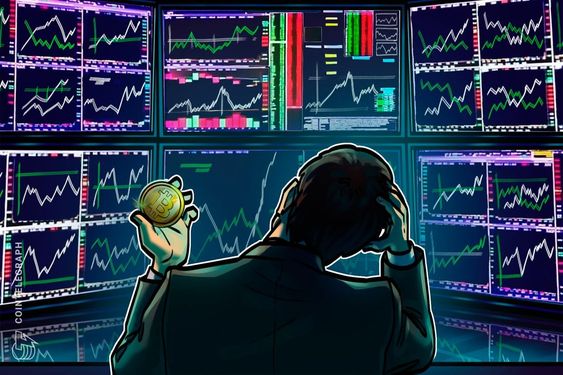Reynaldo C. Lugtu, Jr. l May 10, 2024 l Business World

Cryptocurrency, once a niche interest, has exploded into mainstream consciousness, yet its journey has been anything but smooth. As Molly White illustrates in her article, “The State of Crypto Is Anything But Strong,” published in Bloomberg Businessweek, the current resurgence of crypto is marked by familiar patterns of speculation, manipulation, and regulatory uncertainty. While industry proponents tout a newfound maturity, the reality remains clouded by the shadows of past crashes and ongoing risks.
The recent surge in Bitcoin prices and the proliferation of meme coins have reignited the fervor reminiscent of the 2021-2022 boom. However, behind the facade of legitimacy lies a market still rife with manipulation and scams. The allure of quick riches draws in both seasoned investors and unsuspecting newcomers, perpetuating a cycle of euphoria and disillusionment.
Regulatory bodies like the US Securities and Exchange Commission (SEC) have reluctantly embraced certain crypto products, such as Bitcoin exchange-traded products (ETPs) yet maintain a cautious stance due to the asset’s speculative nature and association with illicit activities. Despite efforts to bring crypto into the fold of traditional finance, concerns persist regarding market manipulation and investor protection.
The intersection of cryptocurrency and artificial intelligence (AI) offers a glimpse into the industry’s evolving narrative. While early advocates positioned Bitcoin as a disruptive force in finance, subsequent narratives shifted to emphasize its speculative allure and utility in AI-powered applications. However, the promise of decentralized AI remains elusive, with blockchain’s inefficiencies and AI’s inherent biases casting doubt on the feasibility of such endeavors.
Cryptocurrency regulation in the Philippines finds itself in a unique state as of 2024. Neither fully embraced nor entirely outlawed, it exists in a quasi-legal realm. Despite not being recognized as legal tender, cryptocurrency transactions are permissible, reflecting the country’s progressive stance towards digital assets. This article explores the evolving regulatory landscape, recent developments, taxation policies, and practical implications for users.
The global phenomenon of cryptocurrency has not spared the Philippines, where the market has witnessed both enthusiasm and skepticism. It evident that the state of cryptocurrency in the country mirrors broader trends of speculation, regulatory challenges, and the quest for legitimacy.
The regulatory oversight of cryptocurrency in the Philippines falls under the purview of the Bangko Sentral ng Pilipinas (BSP) and the Securities and Exchange Commission (SEC). With the exponential growth of the crypto market, the government has taken steps to establish a regulatory framework to govern its usage.
Entities engaging in virtual currency (VC) exchanges must register with the BSP and comply with operational requirements aimed at safeguarding the financial system. The SEC oversees initial coin offerings (ICOs) and investment schemes involving crypto assets. Licenses, including the Virtual Asset Service Provider (VASP) license, Electronic Money Issuer (EMI), and Remittance and Transfer Company (RTC) license, are mandatory for operating crypto exchanges and related services. Notably, the BSP has granted Coins the first Advanced Electronic Payments and Financial Services (EPFS) license, previously exclusive to traditional banks.
Key milestones include BSP Circular No. 944 in 2017 recognizing virtual currencies as valid payment methods and SEC advisories on ICOs and crypto investments in subsequent years. Recent developments include cautionary measures against unregistered exchanges and public reviews of draft rules on financial products and services involving cryptocurrencies.
To regulate and tax the burgeoning crypto market, the Philippine government has imposed a capital gains tax of up to 15% on cryptocurrency transactions. Individuals and businesses involved in crypto trading are required to report capital gains during annual tax filings. Additionally, cryptocurrencies held for investment purposes may be subject to value-added tax (VAT) or ordinary income tax based on their classification.
The approval of PHPC, a stablecoin pegged to the Philippine peso, by the BSP aims to facilitate remittances and reduce transaction costs for overseas Filipino workers. This initiative aligns with the country’s vision of harnessing blockchain technology for financial inclusion.
Cryptocurrencies offer diverse applications beyond speculative trading. Stablecoins enable cost-effective remittances, circumventing traditional banking channels. Decentralized finance (DeFi) platforms empower individuals to access financial services directly, bypassing intermediaries. Crypto gaming ecosystems, exemplified by Axie Infinity, showcase innovative earning opportunities through non-fungible tokens (NFTs) and in-game assets.
While crypto presents lucrative prospects, investors must exercise caution due to inherent risks, including volatility and security vulnerabilities. Choosing regulated platforms like Coins.ph and conducting thorough research mitigates potential pitfalls associated with unregulated exchanges.
The Philippines’ pragmatic approach to cryptocurrency regulation underscores its commitment to fostering innovation while ensuring investor protection and financial stability. Collaboration between regulatory bodies and industry stakeholders enhances transparency and accountability, positioning the country as a dynamic hub for crypto adoption and innovation. As the regulatory landscape continues to evolve, stakeholders are encouraged to stay informed and engage in shaping the future of crypto regulation in the Philippines.
*** Reynaldo C. Lugtu, Jr. is the founder and CEO of Hungry Workhorse, a digital, culture, and customer experience transformation consulting firm. He is a fellow at the US-based Institute for Digital Transformation. He is the chair of the Digital Transformation IT Governance Committee of FINEX Academy. He teaches strategic management and digital transformation in the MBA Program of De La Salle University. The author may be e-mailed at rey.lugtu@hungryworkhorse.com
The views expressed herein are his own and do not necessarily reflect the opinion of his office as well as FINEX. Photo from Pinterest.

